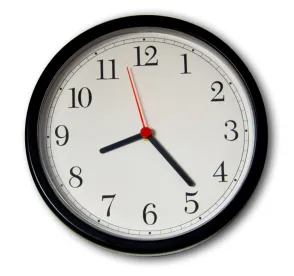Last Friday, Broc Romanek posted about the problem of expressing and determining time in contracts. This reminded me of a Nevada Supreme Court case from 2001 in which the constitutionality of two bills hinged on whether midnight Pacific standard time is the same as midnight Pacific daylight saving time.
At the time, the Article 4, Section 2(2) of the Nevada Constitution provided:
The Legislature shall adjourn sine die each regular session not later than midnight Pacific standard time 120 calendar days following its commencement. Any legislative action taken after midnight Pacific standard time on the 120th calendar day is void, unless the legislative action is conducted during a special session convened by the Governor.
In 2001, the Nevada legislature took final action on two bills between midnight and 1:00 a.m. Pacific daylight saving time. An ambiguity was created because midway through the session, Nevada switched from Pacific standard time to Pacific saving time. In Nevada Mining Ass’n v. Erdoes, 117 Nev. 531, 26 P.3d 753 (Nev. 2001), the Nevada Supreme Court concluded that the bills were constitutionally enacted “because midnight Pacific standard time (PST) is equivalent to 1:00 a.m. Pacific daylight saving time (PDST) . . .”. This interpretation allowed the Nevada legislature when the state was observing daylight saving time on the final calendar day of a session to continue in session until 1:00 a.m. Pacific daylight savings time even though midnight had tolled for the general population.
In reaction to this holding, the people of Nevada in 2012 approved the amendment of Article 4, Section 2(2) to remove the reference to Pacific standard time. Section 2(2) now reads:
The Legislature shall adjourn sine die each regular session not later than midnight Pacific time at the end of the 120th consecutive calendar day of that session, inclusive of the day on which that session commences. Any legislative action taken after midnight Pacific time at the end of the 120th consecutive calendar day of that session is void, unless the legislative action is conducted during a special session.
In a further effort to avoid future disputes, added a new subdivision (4) which defines “midnight Pacific time”:
For the purposes of this section, “midnight Pacific time” must be determined based on the actual measure of time that, on the final calendar day of the session, is being used and observed by the general population as the uniform time for the portion of Nevada which lies within the Pacific time zone, or any legal successor to the Pacific time zone, and which includes the seat of government of this State as designated by Section 1 of Article 15 of this Constitution. The Legislature and its members, officers and employees shall not employ any device, pretense or fiction that adjusts, evades or ignores this measure of time for the purpose of extending the duration of the session.



 />i
/>i

